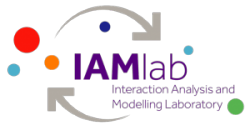We are very pleased that our paper on integrating web page and eye tracking data driven approaches for automatic areas of interest detection has been published at ACM Transactions on the Web!
Sukru Eraslan, Yeliz Yesilada, and Simon Harper. 2020. “The Best of Both Worlds!”: Integration of Web Page and Eye Tracking Data Driven Approaches for Automatic AOI Detection. ACM Transactions on the Web (SCI-E), 14, 1, Article 1. DOI: 10.1145/3372497
Abstract: Web pages are composed of different kinds of elements (menus, adverts, etc.). Segmenting pages into their elements has long been important in understanding how people experience those pages and in making those experiences “better.” Many approaches have been proposed that relate the resultant elements with the underlying source code; however, they do not consider users’ interactions. Another group of approaches analyses eye movements of users to discover areas that interest or attract them (i.e., areas of interest or AOIs). Although these approaches consider how users interact with web pages, they do not relate AOIs with the underlying source code. We propose a novel approach that integrates web page and eye tracking data driven approaches for automatic AOI detection. This approach segments an entire web page into its AOIs by considering users’ interactions and relates AOIs with the underlying source code. Based on the Adjusted Rand Index measure, our approach provides the most similar segmentation to the ground-truth segmentation compared to its individual components.
